Julius Streicher denounced Benito Mussolini, the Duce, as a vassal of the Jews
In his novel Claudia Particella, the Cardinal’s Mistress, Benito Mussolini defended the Jews, arguing that they had been unjustly tortured by the Catholic Church. Angelica Balabanoff and Margherita Sarfatti, Mussolini’s most influential lovers, were Jewish. Cesare Goldmann and Gino Olivetti, both Jews and Freemasons, financed Mussolini’s newspaper Il Popolo d'Italia. Goldmann donated 17,000 lire to Il Popolo d'Italia in 1917. In addition to Goldmann and Olivetti, Józef Leopold Toeplitz, who was also Jewish, helped finance Il Popolo d'Italia.
On March 23, 1919, Goldmann, who presided over the Industrial and Commercial Alliance Club, provided his hall in Piazza San Sepolcro in Milan for Mussolini to found the Fasci Italiani di Combattimento.
In his article Jews, Bolshevism, and Italian Zionism, published in Il Popolo d'Italia on October 19, 1920, Mussolini defended the Jews from the accusation of being behind Bolshevism:
"Bolshevism is not, as people believe, a Jewish phenomenon. The truth is that Bolshevism is leading to the total ruin of the Jews in Eastern Europe."
In this article, Mussolini also promised:
"In Italy, there is absolutely no difference between Jews and non-Jews in any field—whether religion, politics, the military, or the economy. The new Zion, for Italian Jews, is here, in our beloved land."
Goldmann, Olivetti, and Toeplitz financed Mussolini’s March on Rome.
In a propaganda statement issued by Mussolini after his meeting with Angelo Sacerdoti, the Chief Rabbi of the Jewish community in Rome, in 1923, it was stated:
"His Eminence formally declared that the Italian government and fascism never intended, nor do they intend, to pursue an anti-Semitic policy, and that, in fact, they deplore the fact that foreign anti-Semitic parties seek to exploit for their own purposes the fascination that fascism exerts in the world."
In 1926, Mussolini met with Chaim Weizmann, President of the World Zionist Organization, to clarify that he was not opposed to Zionism, committing to help establish a Jewish state in Palestine, on the condition that the Zionists rid themselves of British influence.
In 1927, Mussolini confided to Nahum Sokolow, Secretary-General of the World Zionist Organization, that, in principle, he had nothing against Zionism.
Mussolini addressed the Parliament of the Kingdom of Italy on May 13, 1929:
"We respect this sacred character of Rome. But it is ridiculous to think, as has been said, that synagogues should be closed. Jews have been in Rome since the time of the Kings, perhaps providing clothing after the rape of the Sabine women. There were fifty thousand of them in the time of Augustus, and they asked to mourn over the body of Julius Caesar. They will remain undisturbed, just as those who believe in another religion will remain undisturbed."
Mussolini tasked Nicola Consiglio, Director General of Criminal and Religious Affairs at the Ministry of Justice and Religious Affairs, with drafting a law to regulate the status of the Jewish community in Italy.
Alfredo Rocco, Minister of Justice and Religious Affairs, established a commission composed of three representatives from the Jewish community and three Italian jurists, which drafted the Royal Decree of October 30, 1930—better known as the Falco Law, named after Mario Falco, one of the Jewish members of Rocco’s commission. The Falco Law regulated the status of the Jewish community throughout the country.
After its approval, Angelo Sereni, President of the Committee of Italian Jewish Communities, telegraphed Mussolini to express the gratitude of Italian Jews.
In his interview with journalist Emil Ludwig (who was Jewish) on March 23, 1932, Mussolini stated:
"Anti-Semitism does not exist in Italy. Italian Jews have always behaved well as citizens, and as soldiers, they have fought bravely."
In July, Mussolini appointed Guido Jung, a Jew, as his Minister of Finance. Mussolini justified Jung’s appointment as Minister of Finance of the Kingdom of Italy by arguing that a Jew should be in charge of finances.
In 1933, Mussolini, as Minister of Foreign Affairs of the Kingdom of Italy, began circulating internal policy documents arguing that a Jewish state would be in Italy’s interest.
In 1934, Mussolini supported the establishment of the Betar Naval Academy in Civitavecchia to train Zionist cadets under the leadership of Vladimir Jabotinsky.
Mussolini met again with Weizmann. During this meeting, Mussolini attempted to turn the Zionists against England, telling Weizmann:
"Sometimes I get the impression, Dr. Weizmann, that the British are using you Zionists as a pawn in their power game to take permanent possession of an important Mediterranean coastline."
During this conversation, Mussolini even insinuated:
"Dr. Weizmann, Rome could create your state at once."
Weizmann asked Mussolini:
"Really? As far as I remember, Rome destroyed our state at once."
Mussolini then asked him:
"A cup of tea?"
He pressed a button to call the maid to serve them tea. Then he continued:
"Returning to the subject, for you Zionists to return to Palestine, you must create a Jewish state. I have already spoken with the Arabs. I believe an agreement can be reached. The only difficulty that may arise is the issue of Jerusalem. The Arabs say that the Jews should have their capital in Tel Aviv."
In 1935, Mussolini commented to the Chief Rabbi of the Jewish community of Rome:
"The necessary conditions for the success of the Zionist movement depend on the creation of a Jewish state, raising a flag, and having a language. There is one person who knows this very well—it is the fascist citizen Jabotinsky."
On February 16, 1938, Mussolini published Note No. 14 of Informazione Diplomatica, advocating that the solution to the Jewish question was the formation of a Jewish state.
Pietro Tresso observed:
"Fourteen of the senators appointed by Mussolini were Jews. Under fascism, there were 203 Jewish professors in Italian universities. They all swore loyalty to the regime. Federico Cammeo, a Jew, laid the legal foundations for reconciliation with the Vatican. Guido Jung, a Jew, was a member of Mussolini’s government as Minister of Finance. The only two biographers to whom the Duce granted cooperation were the Italian Jew Margherita Sarfatti and the German Jew Emil Ludwig. An Italian fascist recently published a book on the economic development of Italy after the country's unification, the history of a proletarian nation, written by the Jew Hans Fraenkel. The General Confederation of Industry, which at the time of the March on Rome had the Jews Olivetti as presidents, gave Mussolini about 20 million lire."
In December 1943, Mussolini confided to journalist Bruno Spampanato that he regretted the Manifesto of the Racist Scientists of July 14, 1938:
"The racial manifesto could have been avoided. It was the scientific abstraction of some professors and journalists, a meticulous German essay poorly translated into Italian. It is far from what I said, wrote, and signed on the subject. I suggest you consult the old editions of Il Popolo d'Italia. For this reason, I am far from accepting the myth of Rosenberg."
In October 1943, Adolf Hitler sent Dr. Georg Zachariae to care for Mussolini’s health in the Italian Social Republic.
Mussolini confided to Zachariae:
"I am not anti-Semitic, and I recognize that Jewish scientists and technicians have given the world exceptional individuality, but I consider it necessary to try to limit the decisive Jewish influence and the predominance of Jews in all fields of production and capital, reducing it to an equal participation that corresponds proportionally to their numerical importance. I cannot approve of the way the Jewish problem was resolved in Germany, due to the methods adopted, which are not compatible with the free life of the civilized world and are detrimental to German honor. However, I must acknowledge that some incidents were provoked by the Jews—certainly not in a way that justifies Nazi violence."
Article 14 of the minutes Some Ideas on the Future Political and Social Structure of the Italian People, from the Council of Ministers of the Italian Social Republic on December 16, stated:
"The Italian people consider all racial questions abolished and, regarding the Semites, will support, on the international stage, the opportunity for a definitive solution with the creation of a Jewish state. With wars of conquest, invasions, and the more or less long-lasting dominations to which all peoples have been subjected throughout history, mixtures have occurred to the point where discrimination can no longer define racial homogeneity. Furthermore, it is not an exaggeration to say that the human race, despite its different colors, shapes, habits, and customs depending on latitudes and location, is one. In fact, it is observed that all tend to change progressively in all domains towards the goal of common improvement, which is why the Italian people consider any racial question superfluous. As for the Semites, no one ignores the great importance that the small Jewish people had in antiquity and what their contribution was to our Mediterranean civilization. After the Roman conquest of Judea, the small state collapsed and dispersed throughout the world, now believed to number fourteen million. Since then, they have suffered all kinds of persecution over the centuries, and it is therefore considered necessary to give them the opportunity to create their own state, with their diplomatic representations in all countries, so that they too may have a homeland, an essential point of support for their existence."
For this reason, it is not surprising that Julius Streicher considered Mussolini a puppet and a lackey of the Jews.
REFERENCES: Renzo De Felice, Storia degli ebrei italiani sotto il fascismo, Einaudi, Torino 1993, pp. 71 e 79. Dagli Atti del Parlamento italiano. Camera dei deputati. Discussioni. Anno 1929 - Volume I, pp. 129-154. Aaron Gillette, Racial Theories in Fascist Italy, Taylor & Francis, Londres, 2004, p. 95. George Zachariae, Mussolini si confessa, Garzanti, 1948, p. 169. Patrick Bernhard, The great divide? Notions of racism in Fascist Italy and Nazi Germany: new answers to an old problem, Journal of Modern Italian Studies (1) 97-114.
0


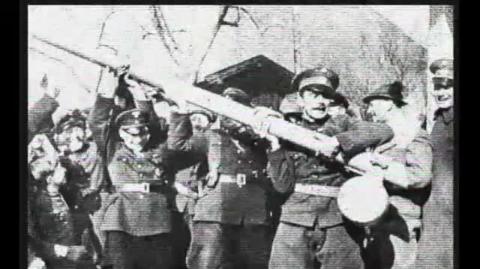
 Sant77
Sant77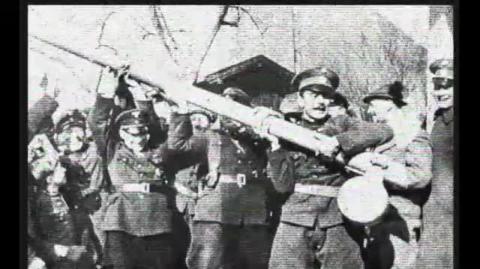

 LiberumArbitrium
LiberumArbitrium
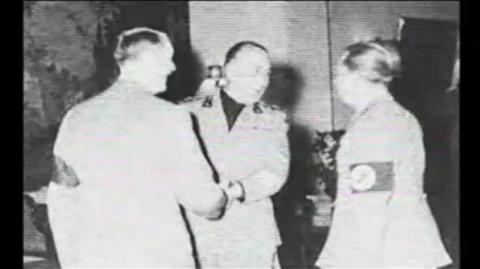
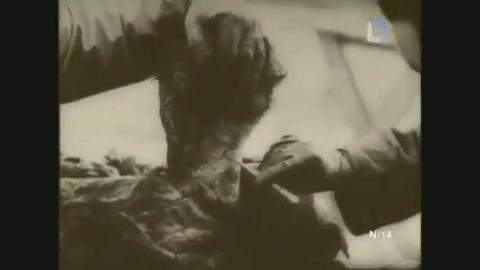
 Life_N_Times_of_Shane_T_Hanson
Life_N_Times_of_Shane_T_Hanson
 Nick J Fuentes
Nick J Fuentes

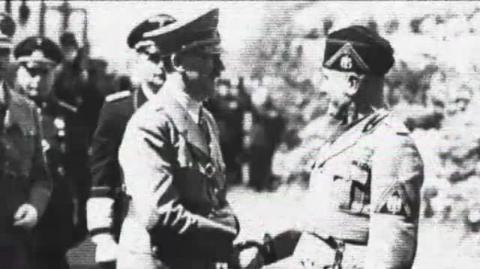
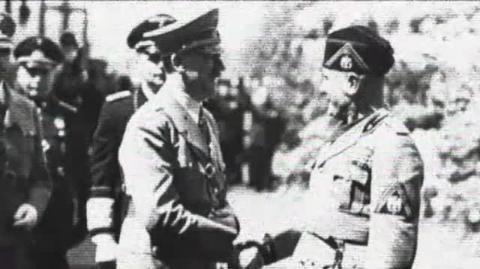

 KnowMoreNews
KnowMoreNews
 say Never_Again
say Never_Again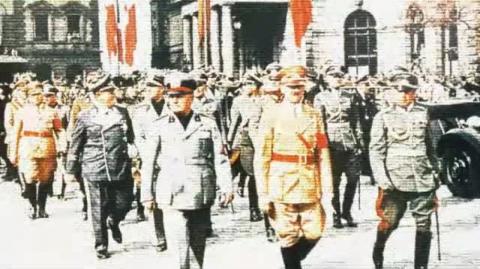
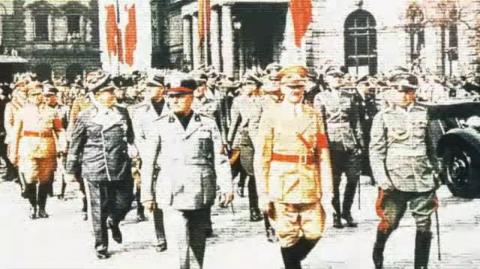


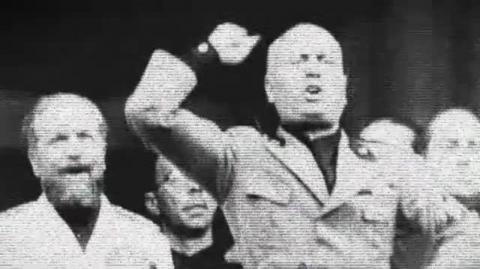

 Ozmosis
Ozmosis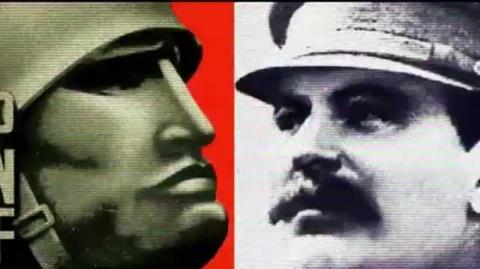


Log in to comment